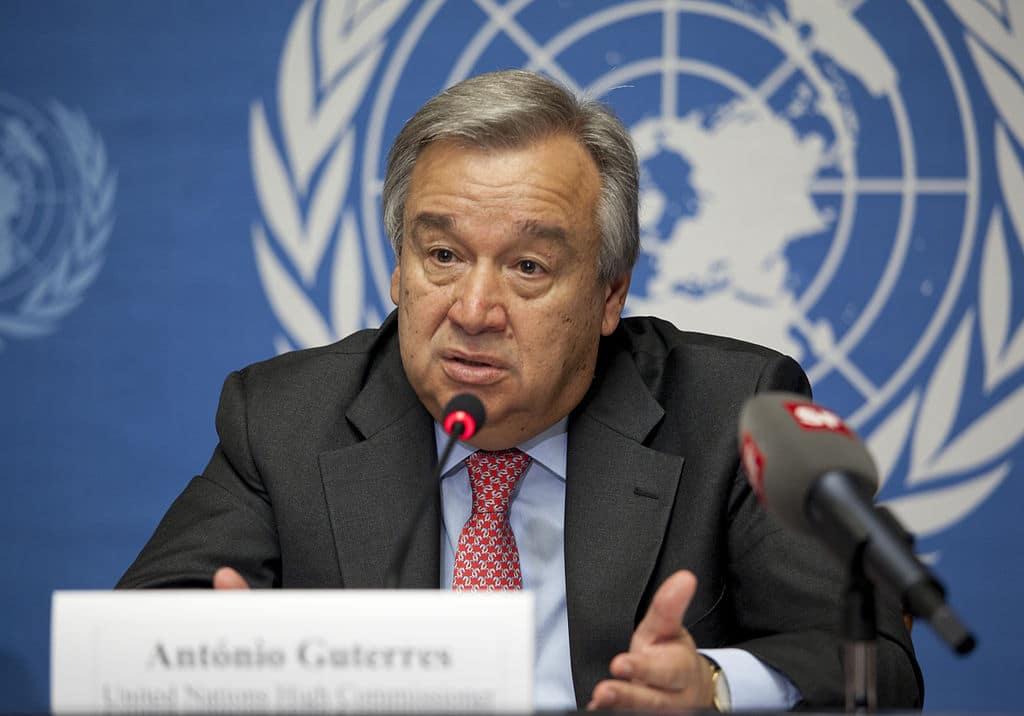UN Calls for Urgent Action to Protect Water-related Resources

UN Deputy Secretary-General Amina Mohammed delivered a powerful message at the opening of the International Conference on Glaciers’ Preservation in Dushanbe, Tajikistan. She praised the country for its commitment to glacier conservation and highlighted 2025 as the United Nations’ International Year of Glaciers’ Preservation. Mohammed emphasized the urgent need for action to protect these vital water sources, which are crucial for billions of people worldwide. She called for enhanced global cooperation and investment in adaptation strategies to combat the accelerating loss of glaciers, which poses significant threats to ecosystems, livelihoods, and water security.
Significance of Glaciers and Current Challenges
During her remarks, Mohammed underscored the critical role glaciers play as “water towers of the world,” storing nearly 70 percent of Earth’s freshwater. She noted that the past decade has seen a dramatic increase in glacier retreat, with over 9,000 billion tons of ice lost since 1975. The last three years alone have recorded the largest mass loss of glaciers in history, raising alarms about the future of these essential resources. The Deputy Secretary-General warned that if current trends continue, many glaciers may not survive this century, leading to severe consequences for global water security, biodiversity, and community stability.
The impacts of glacier loss extend beyond environmental concerns. Vulnerable communities, particularly in developing regions, face heightened risks of poverty, forced migration, and deteriorating living conditions as their water sources dwindle. Mohammed highlighted that billions depend on glacier-fed water for drinking, irrigation, and energy production. The melting of glaciers also contributes to rising sea levels, threatening coastal cities and displacing millions. The urgency of addressing these challenges cannot be overstated, as the consequences of inaction will affect generations to come.
Call for Global Action and Collaboration
Mohammed called for immediate and ambitious action to address the glacier crisis, emphasizing the need for multilateral cooperation and strategic partnerships. She recognized the contributions of organizations such as the World Meteorological Organization and UNESCO in advancing glacier research and monitoring. The Deputy Secretary-General urged countries to integrate climate adaptation targets into their national plans, linking them to budgets to optimize resource allocation and build institutional capacities.
She stressed that investing in adaptation is essential for sustainable growth and resilience. The upcoming financing for development conference in Seville presents an opportunity to advocate for increased investment in adaptation strategies. Mohammed highlighted that every dollar spent on resilience enhances early warning systems, protects infrastructure, and secures livelihoods against extreme climate events. Without significant investment now, the costs of inaction will escalate, leading to economic losses and humanitarian crises.
Strategies for Glacier Preservation
As the world embarks on the Decade for Glaciers’ Preservation, Mohammed outlined three key messages for action. First, she called for the conference to serve as a rallying point for urgent action, fostering multilateral cooperation and ambitious climate pledges. Second, she urged nations to establish measurable adaptation targets across various sectors, ensuring that these plans are linked to national budgets. This approach will help avert losses and create an enabling environment for large-scale investments.
Lastly, she emphasized the importance of identifying market-ready investments backed by high-quality data. These investments should demonstrate co-benefits for job creation and economic growth while unlocking new financial services. Mohammed also highlighted the potential of data-driven predictive analytics and artificial intelligence in strengthening early warning systems and enhancing preparedness for water-related risks.
Looking Ahead: A Collective Responsibility
In conclusion, Mohammed reiterated the need for collective action to safeguard glaciers and the ecosystems they support. She called on global leaders to leverage upcoming international conferences to elevate political will and focus on glacier preservation as a critical issue for people and the planet. As the world prepares for the 2026 UN Water Conference, she acknowledged the commitment of Tajikistan and the Netherlands in promoting sustainable water management.
The Deputy Secretary-General’s message was clear: protecting water-related ecosystems is not just an environmental imperative but a moral obligation to ensure a sustainable future for all. The UN remains committed to supporting these efforts, emphasizing that the time to act is now. The future of our children and the health of our planet depend on the actions taken today to preserve these vital resources.
Observer Voice is the one stop site for National, International news, Sports, Editor’s Choice, Art/culture contents, Quotes and much more. We also cover historical contents. Historical contents includes World History, Indian History, and what happened today. The website also covers Entertainment across the India and World.
Follow Us on Twitter, Instagram, Facebook, & LinkedIn

